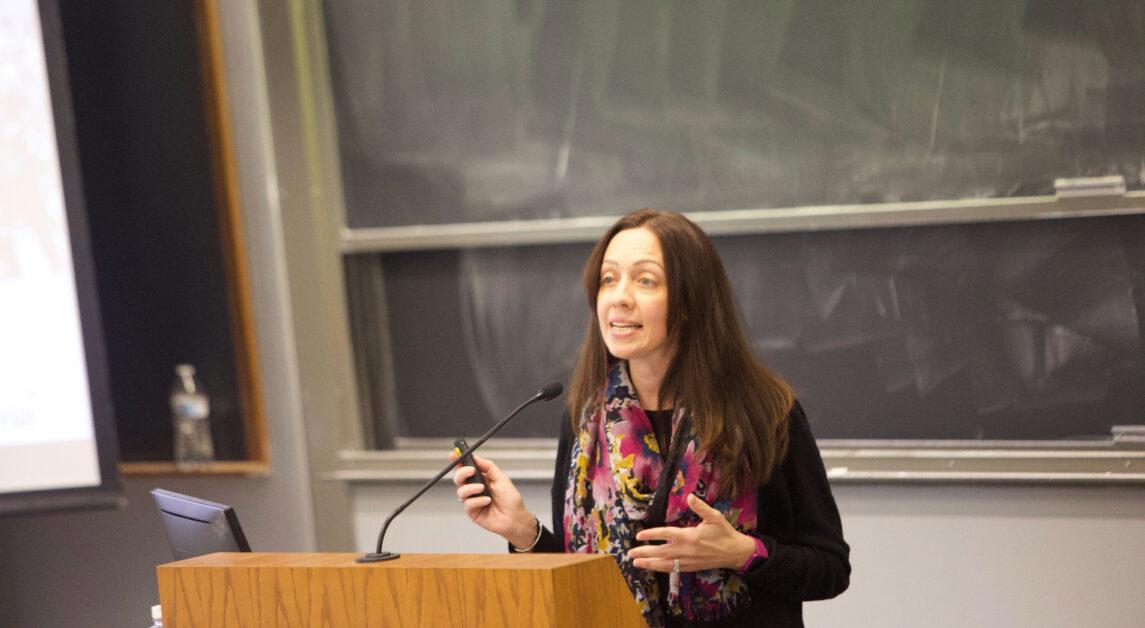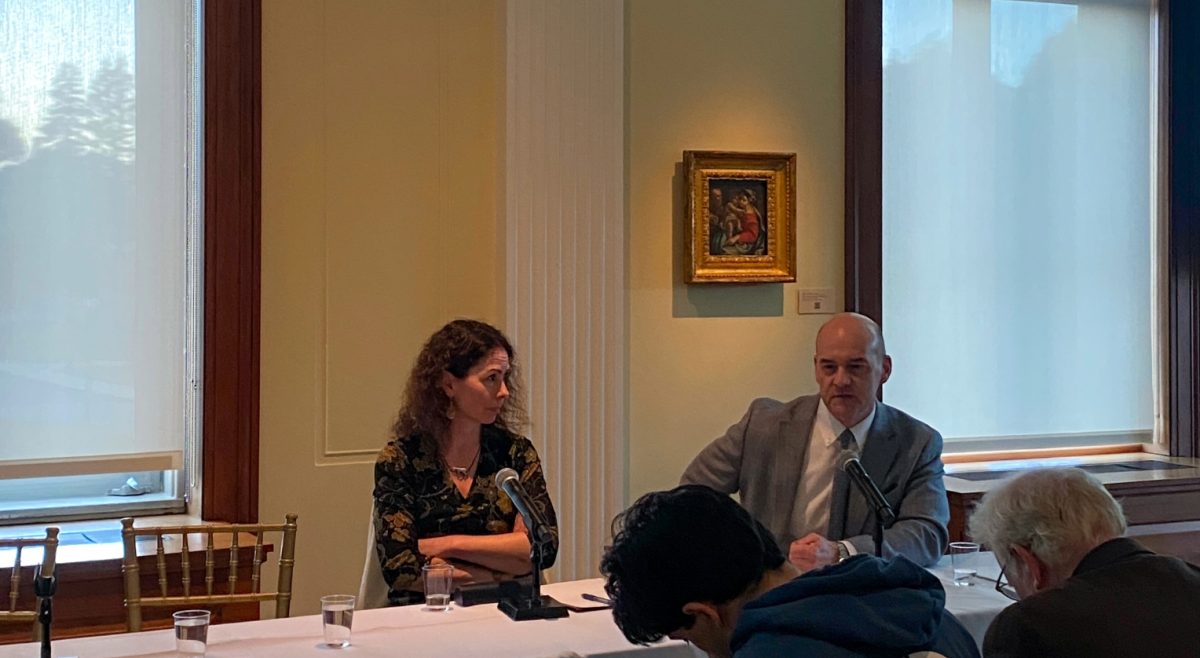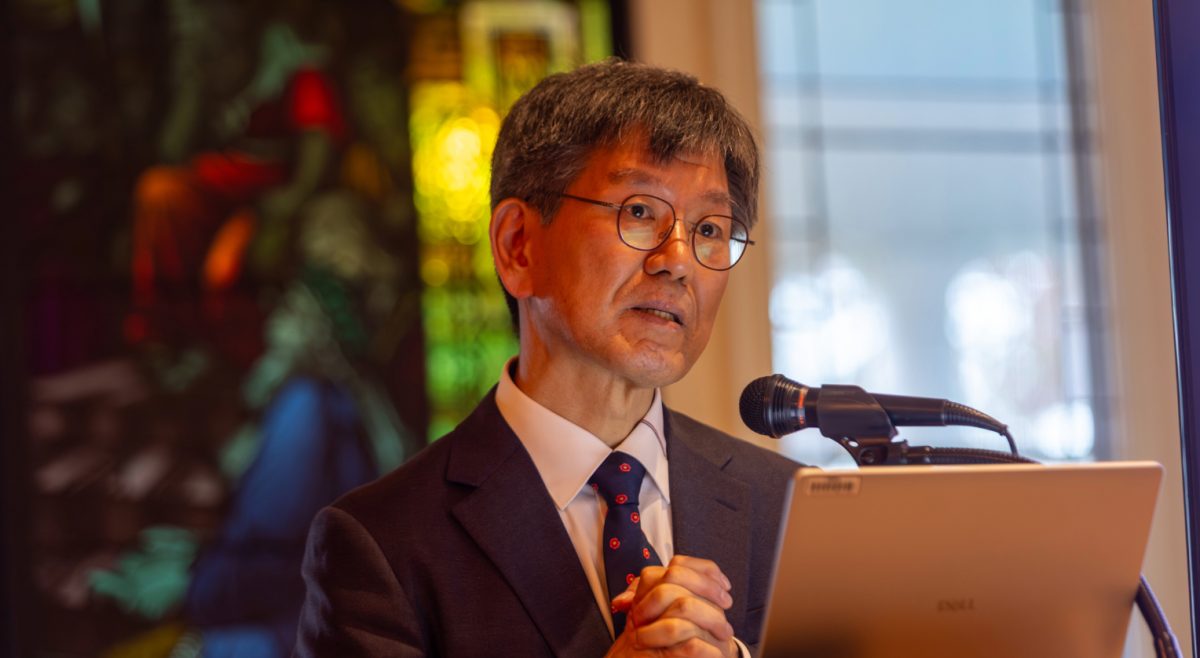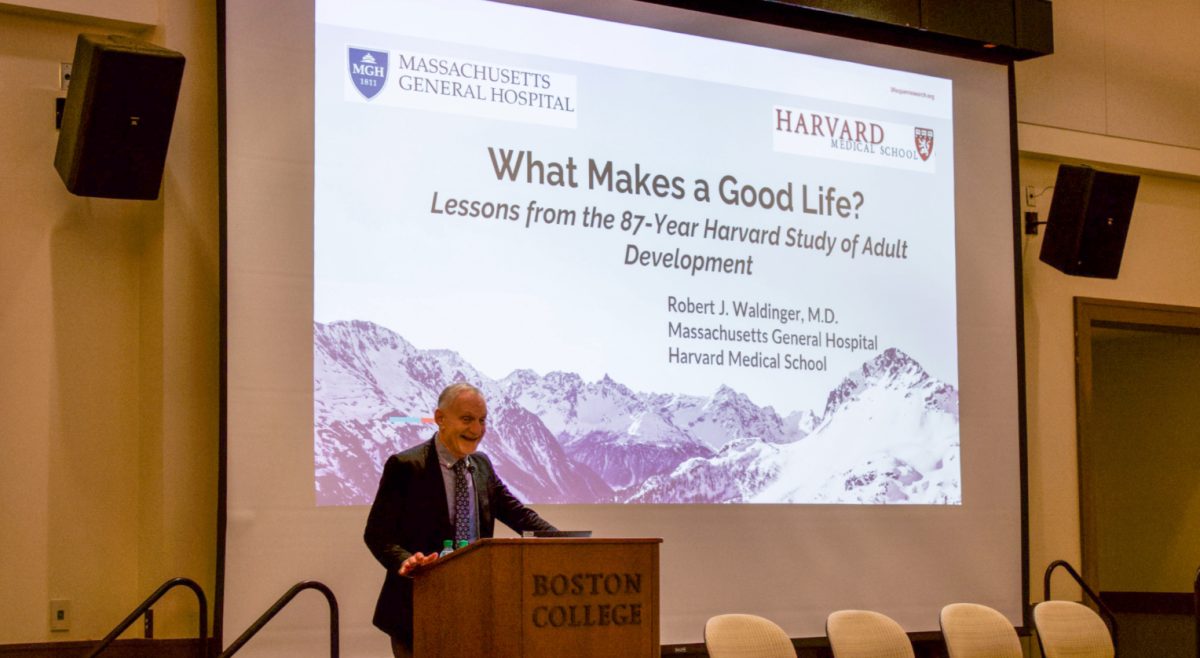When the U.S. military trains foreign soldiers, it emphasizes norms such as protecting human rights and obeying civilian authority. But this training often produces the opposite result, according to Renanah Joyce.
“U.S. training made soldiers less willing to prioritize human rights and less supportive of liberal norms,” said Joyce, an assistant professor of politics at Brandeis University.
Joyce visited Boston College on Thursday to deliver a lecture titled “Soldiers’ Dilemma: Foreign Military Training and Liberal Norm Conflict.”
According to Joyce, the norms of protecting human rights and obeying civilian authority do not always coincide.
During the rice riots of 1979 in Liberia, for example, Liberia’s then-president ordered soldiers to fire on protesters, Joyce said. The soldiers had to decide whether to “protect people or obey leaders.”
“When liberal norms clash, militaries are instead going to fall back on this third norm of cohesion,” Joyce said.
Cohesion, she explained, is the bond that unifies soldiers around a shared mission.
“So the need to preserve these bonds functions as a norm that motivates soldiers to prioritize loyalty and commitment to their unit,” Joyce explained.
To further research this dilemma of conflicting norms, Joyce conducted a study analyzing U.S. military training in Liberia to find a correlation between liberal human rights protections and civilian authority.
Liberian soldiers answered survey questions regarding their decisions on specific moral dilemmas.
“After a big tariff increase, local business owners go on a strike in their protests in the street,” said Joyce, giving an example of a survey question. “The police are managing it, but the president wants to send a forceful message and calls for the military to intervene to stop the protests. The commander refuses to send soldiers into the streets to stop protests.”
Respondents were then asked whether they agreed with the commander’s decision, disagreed, or thought it did not matter as long as the military was a unified front.
“To summarize my findings, I find that liberal norm conflict reduces willingness to prioritize human rights [and] increases prioritization of cohesion,” Joyce said.
Joyce added that when the U.S. foreign military training solely seeks to instill liberal norms, it might encourage more violent behavior in foreign militaries. Instead, the U.S. military should work to “regulate military behavior.”
“There is a need to emphasize and clarify norm hierarchies,” Joyce said. “If the U.S. is serious about putting people first, then say so, even if that removes some flexibility.”








